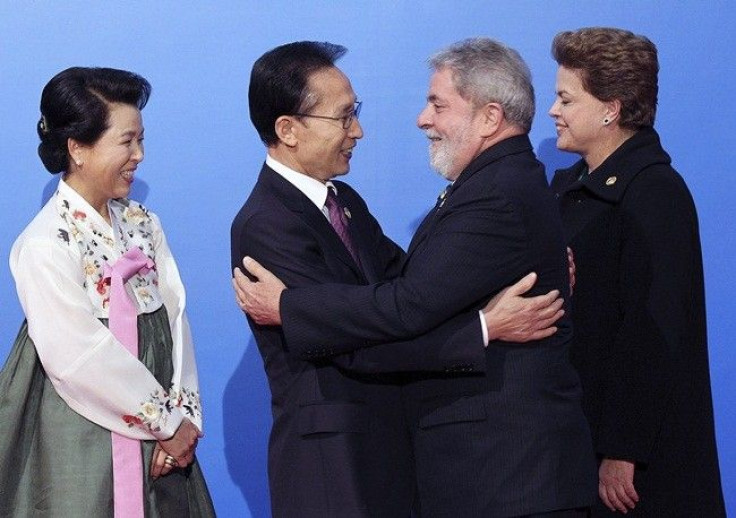G20 leaders enter final innings of summit

There has been “big progress” in the negotiations between world political leaders as they seek to hammer out an agreement and compromise on major economic issues on the final day of the G20 summit in Seoul, South Korea.
According to the Yonhap news agency, South Korean President Lee Myung-bak uttered those words but did not elaborate.
Reportedly, envoys from the G20 nations engaged in animated overnight talks to come to an understanding over such contentious issues as currency devaluation and trade imbalances.
According to Yonhap, a South Korean government source said that the negotiators came close to an agreement on establishing more market-determined exchange rate systems, increased flexibility of their currencies and the creation of a guideline on sustainable current account imbalances in time for the next G20 meeting in Paris, France.
At a working dinner here on Thursday night, President Lee implored other leaders to make concessions to reach a compromise on currency and trade imbalance issues, stressing the need for greater policy coordination to boost economic growth, South Korean spokesman Kim Yoon-kyung said.
So far, the G-20 has achieved great results through international coordination, and now is the time for us to strengthen it without losing the sense of urgency, Lee was quoted as saying at the dinner. I would appreciate it if the leaders of each country made concessions.
A black cloud over the entire summit has been the growing row between China and the U.S. over their respective currencies and trade. Washington keeps pressuring Beijing to cease keeping its yuan currency so artificially low, which keeps the prices of Chinese exports at attractively modest prices, thereby (according to the Americans) worsening the global trade imbalance.
Complicating matters is the recent decision by the Federal Reserve to unleash up to $600-billion in funds into the U.S. economy -- China and Germany, among other nations, have widely criticized this move, contending it will lower the value of the dollar and hurt exports of other countries.
The G20 leaders are expected to draft a joint declaration that will be released to the public after the summit concludes.
© Copyright IBTimes 2024. All rights reserved.











